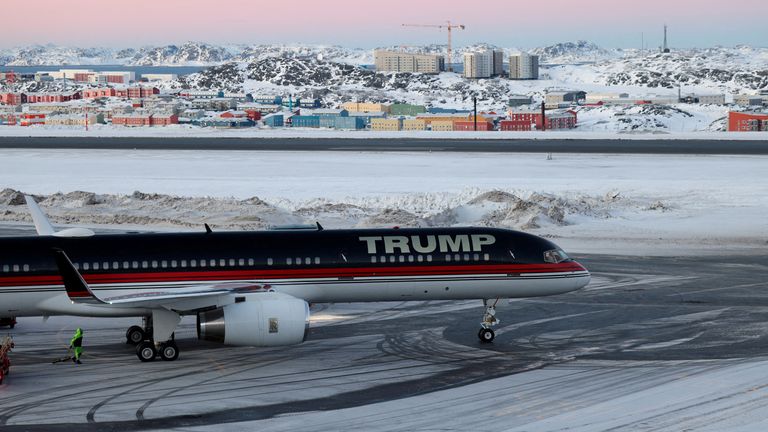When President-elect Donald Trump talked about acquiring Greenland for the United States he was following a long tradition of US presidents musing about this issue.
In 1867 President Andrew Johnson thought about trying to buy Greenland. So did President William Taft in 1910.
During the Second World War the US occupied Greenland to prevent anyone else from getting access to it, and in 1946 President Harry Truman made Denmark another offer for it.
From 2016 until 2019 the Trump administration did more digging around on the idea and before Mr Trump was defeated in 2020 there was a full-scale diplomatic row with Denmark over it all.
The reasons for this interest are not hard to discern.
Any view of a map, particularly projected from the Arctic Circle, shows how close all the Arctic nations are to each other in reality. Then add to it the fact that the famous – almost mythical – Northwest Passage from the Atlantic to the Pacific is beginning to appear for the first time in human history as global warming opens up the ice across the North Pole.
This is an alarming symptom of climate change but it is nevertheless soon to open a new and critical trans-continental shipping route into the North Atlantic from the Asian Pacific.
Read more:
Why does Trump want to buy Greenland?
Donald Trump Jr ‘to visit Greenland’
Then there are the rare earth elements (REEs) that are tied up below Greenland’s snow and ice – some of the greatest known reserves of Scandium, Yttrium, Dysprosium and Neodymium, among others, are to be found in Greenland.
It’s the biggest island on the planet but fewer than 60,000 people live there. Through their Danish citizenship, they are all citizens of the European Union as well.
But there is also a strong desire for independence from Denmark, though the Greenlanders need Copenhagen for at least 50% of all they spend on health and welfare.
So there may be something in all this for the incoming Trump administration. To make a deal with the Greenlanders that economically underpins some new-found independence for them, but gives the US some special economic and security status in the territory?
Denmark won’t like that idea, but it may be firming up among some of the more opportunistic politicians in Greenland’s capital, Nuuk. It is certainly in the minds of some of the more opportunistic soon-to-be leaders in Washington DC.


